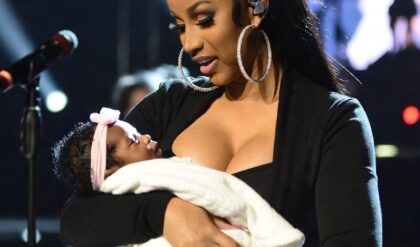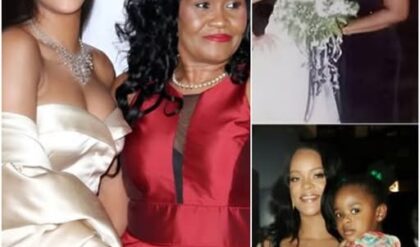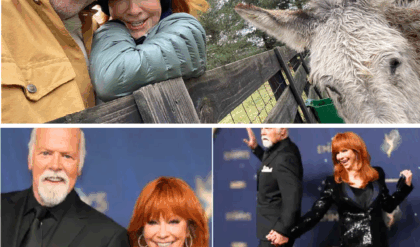In the ever-evolving landscape of Hollywood, where talent and controversy often collide, few stories have captured as much attention as Rachel Zegler’s rapid rise and polarizing fall from grace. The 23-year-old actress, once celebrated as a fresh face after her breakout role in Steven Spielberg’s West Side Story (2021), has become a lightning rod for debate, particularly following her casting as the titular character in Disney’s live-action Snow White (2025). Recent reports, fueled by insider accounts, have branded Zegler as “too dangerous to touch” in Hollywood, citing her outspoken political views, public feuds, and comments perceived as dismissive of beloved classics. This article explores the controversies that have tarnished Zegler’s reputation, the insider claims shaping her career trajectory, and the broader implications for young stars navigating an industry increasingly divided by culture wars.
A Star on the Rise, a Career in Turmoil
Rachel Zegler’s journey began in Hackensack, New Jersey, where she was born in 2001 to a Colombian mother and Polish-American father. Raised in a multicultural household, she developed a passion for musical theater, performing in school productions and sharing covers of Broadway hits on YouTube. Her talent caught the eye of casting directors when, at 16, she responded to an open call for West Side Story. Beating out over 30,000 hopefuls, Zegler landed the role of Maria, earning a Golden Globe for Best Actress in a Motion Picture – Comedy or Musical. Critics lauded her vocal prowess and emotional depth, positioning her as Hollywood’s next big thing. Roles in Shazam! Fury of the Gods (2023), The Hunger Games: The Ballad of Songbirds & Snakes (2023), and Disney’s Snow White followed, cementing her status as a rising star.
Yet, Zegler’s ascent was not without turbulence. Even during West Side Story’s awards season, she sparked controversy by publicly expressing disappointment on social media over not being invited to the 2022 Oscars, despite the film’s Best Picture nomination. Her posts prompted the Academy to offer her a presenting role, but the incident left some insiders, including those at Disney, wary of her tendency to air grievances online. This early episode foreshadowed what many now cite as a pattern of behavior that has made her a risky bet for studios.
The Snow White Backlash: A “Woke” Princess Under Fire
The real storm erupted with Zegler’s casting as Snow White in Disney’s live-action remake, announced in 2021 and released on March 21, 2025. From the outset, her Latina heritage drew racist backlash from online trolls who argued that Snow White, traditionally depicted as having “skin as white as snow,” should not be played by an actress of color. Zegler responded defiantly, tweeting that the character’s name reflected resilience rather than literal skin tone, and dismissed critics as “losers obsessed with maintaining the bloodline purity of cartoon princesses.” Supporters, including film critics, defended her casting, comparing the hate to that faced by Halle Bailey in The Little Mermaid (2023), with one outlet calling it “racism, plain and simple.”
More damaging, however, were Zegler’s comments about the 1937 animated Snow White. In 2022 interviews, she described the original as “extremely dated” in its portrayal of women, criticizing the prince’s “stalker” behavior and emphasizing that her version would prioritize leadership over romance. “There’s a big focus on her love story with a guy who literally stalks her. Weird. So we didn’t do that this time,” she told Extra. These remarks, resurfaced in 2023, were seen by some as a disrespectful jab at Disney’s legacy. An insider told Page Six that Disney executives were exasperated, noting, “She’s an outspoken 20-something and Disney chiefs have called her directly and asked her to tone down her posts. They’ve called her management, but she won’t listen.” The son of the original film’s director reportedly said Walt Disney would be “turning in his grave.”
Zegler’s political activism further complicated matters. In August 2024, while promoting the Snow White trailer at Disney’s D23 event, she posted on X, “and always remember, free Palestine.” The comment, viewed 8.8 million times, clashed with co-star Gal Gadot’s pro-Israel stance, leading to reported tensions on set. Sources say producer Marc Platt flew to New York to urge Zegler to remove the post, citing concerns over the film’s $270 million budget, but she refused. The fallout included death threats against Gadot, prompting Disney to bolster her security. Following Donald Trump’s 2024 election victory, Zegler posted on Instagram, “F—k Donald Trump” and “May Trump supporters … never know peace,” later apologizing after Disney intervened again, assigning her a social media strategist to vet future posts.
The Insider Claim: “Too Dangerous to Touch”
These incidents have led to the damning label from a Hollywood insider, reported by NewsNation, that Zegler is “too dangerous to touch.” The source claimed studios are hesitant to cast her due to her refusal to “shut up,” drawing parallels to the Emilia Pérez controversy, where star Karla Sofía Gascón’s resurfaced offensive tweets sank the film’s Oscar prospects. “She doesn’t know when to stay quiet,” the insider said, noting that Zegler’s lack of upcoming film projects on IMDb—save for her role in the West End’s Evita—is unusual for an actress of her caliber. The Snow White debacle, which grossed only $43 million domestically against its massive budget, has been partly attributed to her comments alienating conservative audiences and fueling “anti-woke” boycotts.
Zegler’s Evita run, which began in June 2025 at London’s Palladium, has not helped her case. Reports of empty seats (over 70% unsold) and discounted tickets as low as $29.50 have been linked to lingering resentment from her Disney controversies. Critics also pointed to a promotional stunt where she performed a key number on a balcony for passersby while paying audiences watched on screens, calling it a “bait-and-switch.” Social media posts on X, like those from user @Aku_700, labeled her “insufferable,” while others accused her of sabotaging co-star Andrew Burnap by joking that his scenes as the prince “could get cut.”
A Culture War Scapegoat or Self-Inflicted Wounds?
The narrative of Zegler as “too dangerous” is not without counterarguments. Supporters argue she’s a scapegoat in Hollywood’s culture wars, targeted for her identity as a young Latina woman and her progressive views. Film critic Kelechi Ehenulo called her a “victim of culture wars,” noting that actors from underrepresented backgrounds often face disproportionate backlash. “What irks me is how easy [people of color] actors become targets for backlash on social media and yet the culture of silence from studios says it all,” she told the BBC. Zegler herself revealed the toll, telling i-D Magazine that harassment, including profanities shouted at her apartment over her Snow White casting, drove her to therapy and anxiety medication. “My psychiatrist has seen me through all of it,” she said, crediting treatment for helping her cope.
Some defend her comments as reflective of a generational shift toward authenticity. Unlike older stars, Zegler belongs to a cohort unafraid to voice political opinions, even at career costs. Her Snow White performance, despite the film’s 42% Rotten Tomatoes score, earned praise, with reviewers calling her a “bright spot” in an otherwise flawed remake. Supporters like Evita co-star James Olivas dismissed the hate as “manufactured outrage,” arguing that Zegler’s activism and candor are unfairly weaponized against her.
The Bigger Picture: Hollywood’s Risk-Averse Future
Zegler’s case highlights a broader trend in Hollywood, where studios increasingly prioritize “safe” talent to avoid PR disasters. The Emilia Pérez fallout, driven by Gascón’s past tweets, mirrors Zegler’s situation, suggesting that personal controversies can overshadow artistic merit. Disney’s decision to scale back Snow White’s premiere—opting for a press-free event at El Capitan Theatre—reflects this caution, as does the cancellation of a planned Tangled remake, reportedly due to fears of further backlash. As one X user put it, “Disney is at war with its own fan base,” caught between progressive casting and “anti-woke” sentiment.
For Zegler, the road ahead is uncertain. Her Evita role showcases her vocal talent, but the lack of confirmed film projects raises questions about her Hollywood future. Some speculate she may pivot to theater, where her skills first shone, while others believe she’ll rebound as studios recognize her star power. Her story serves as a cautionary tale for young actors: in an era of social media scrutiny, a single tweet or soundbite can redefine a career. Whether Zegler is truly “too dangerous” or simply a bold voice in a risk-averse industry, her saga underscores Hollywood’s uneasy dance with authenticity, identity, and public perception.





